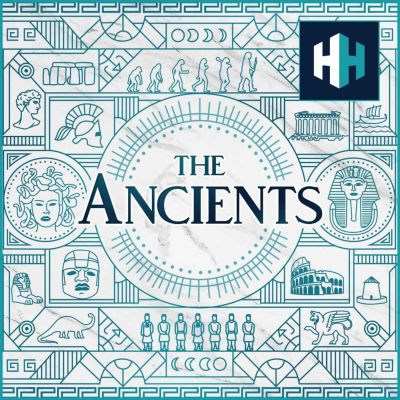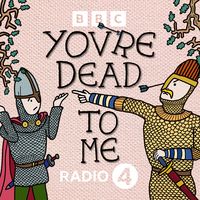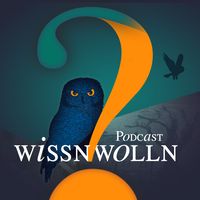Alexander the Great has gone down in history as one of the greatest military leaders of all time, despite only living to the young age of 32. During this time, due to his battle tactics he was able to conquer land stretching from Greece to northwestern India.For this mega episode we've compiled the definitive list of Alexander the Great's biggest battles: The Battle of Granicus, the Battle of Gaugamela and the Battle of the Persian Gate. We hope you enjoy this episode and let us know if you agree or disagree.You can email the podcast at theancients@historyhit.com or leave us a review.You can also take part in our listener survey here.
https://www.historyhit.com
Gesamtlänge aller Episoden: 12 days 21 hours 38 minutes
recommended podcasts
episode 422: The Roman Auxiliary
Auxiliaries were some of the most important troops in the all-conquering Roman Army. Unlike legionaries, their more heavily-armoured and widely famed counterparts, auxiliaries were recruited from across the Empire and were renowned for their versatility. Deployed as border guards in the far-away hinterlands near Hadrians Wall or as mobile cavalry in the deserts of Parthia, they helped aid the advance of Rome’s military behemoth in many more ways than one...
episode 421: The Beaker People
he Beaker People were a Bronze Age culture that revolutionised prehistoric Britain. They were responsible for introducing Bronze Age technology into the British isles for the first time, and also completely replaced the island’s earlier inhabitants. Identified by their distinctive style of pottery they quite literally changed the faced of British settlement and genetics forever...
episode 420: The Library of Alexandria
The Library of Alexandria was one of the most important and most celebrated buildings of the ancient Mediterranean. It was a great hub of learning and literature and made Alexandria one of the ancient world’s foremost centres of knowledge and culture, and the jewel of the Nile Delta. But when was it built? And where did all the books come from?
In today’s episode of The Ancients, Tristan Hughes speaks to Dr. Islam Issa about the story behind one of histories greatest libraries...
episode 419: Apollo: God of the Sun
Apollo, the favourite son of Zeus and twin brother of Artemis, was a Greek God with many faces. Perhaps most famous as Phoebus, the God of the Sun, he was the patron of poetry and prophecy, of music and dance. And yet he also possessed a darker side. He was a terribly vengeful character and brought death and disease to both those he hated and loved through his trademark poisonous arrows...
episode 417: The Goths
The Goths are renowned for many things, not least sacking Rome in 410 AD and helping to bring about the fall of the Western Roman Empire. They were a 'barbarian' people from across the Danube who began migrating into the Empire during the 4rd and 4th centuries, pushed out of their ancestral nomadic lands by the onrushing Huns. But what were their origins? And did they really cause the fall of Rome?
In this episode of The Ancients, Tristan Hughes speaks to Dr...
episode 416: Looted Artefacts: Black Market of Archaeology
Have you ever wondered about the dark side of archeology? The illegal seizing of ancient artefacts? The looting of goods from age old historical sites and their sale on the black market? Well it is a practice that goes back hundreds of years and today we’re exploring how it works, why it happens and what government bodies are doing to prevent it.
In this episode of The Ancients Tristan Hughes is joined by Prof...
episode 415: The First Europeans
Europe’s earliest known humans lived over 1.2 million years ago. After initially roaming the plains of Iberia in small groups, they spread across the Pyrenees into the wider European continent. But for more than 100,000 years all traces of humans in these regions vanish. The question is…what happened?
In today’s episode of the Ancients, Tristan Hughes is joined by Dr. Chris Stringer, and by Dr...
episode 414: How to Survive in Babylonia
Would you be able to survive in ancient Babylonia?
In this episode, Tristan is joined once again by Amanda Podany from California State Polytechnic University to discuss the realities of daily life in this fascinating empire. Together, they discuss everything from clay tablet literature and ancient board games to crime, slavery and female entrepreneurship in the era of King Hammurabi c. 1750 BC.
Produced by Joseph Knight. Edited by Aidan Lonergan...
episode 412: The Great Sphinx
The Great Sphinx of Giza is one of the most iconic monuments from ancient history. 73 meters in length and 20 meters high, the huge limestone statue depicts a mythical creature with a lion's body and a human head thought to represent Khafre, an ancient Egyptian pharaoh of the Fourth Dynasty during the Old Kingdom (c. 2570 BC)...
episode 411: Pontius Pilate
Pontius Pilate was the Roman Prefect of Judea during the reign of Emperor Tiberius and is most famous for condemning Jesus of Nazareth to death by crucifixion in the Four Gospels. But who really was he? And how much do we know about him?
In this Easter special of The Ancients, Tristan speaks to Prof. Helen Bond to delve deeper into the life of Pontius Pilate, and discover what else we know about this famous Roman governor...








































